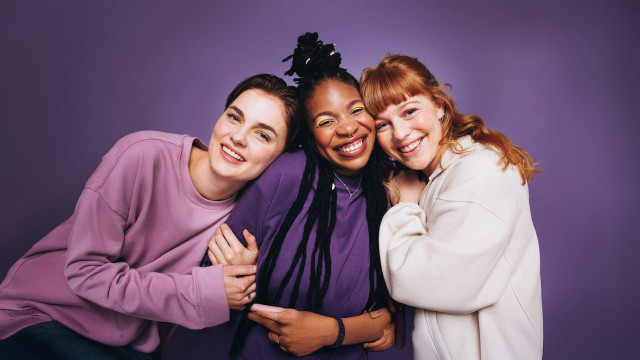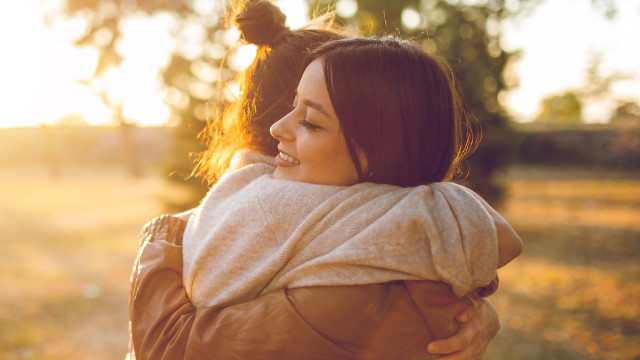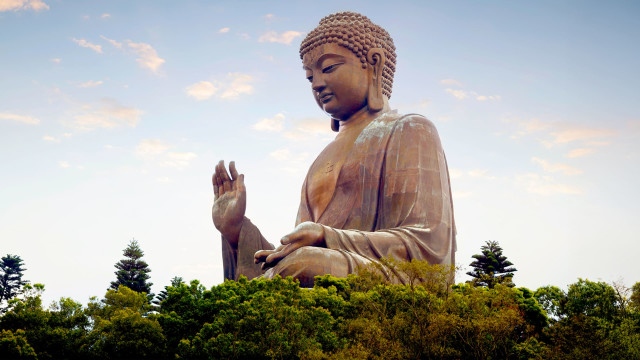The Secret to True Self-Acceptance

At three years old, I tried to bleach my skin. By the time I was 13, I had developed a deep aversion to being in the sunlight out of a fear of getting darker. But today, after a lifelong journey of forgiveness and self-acceptance, I can wholeheartedly say I am in love with my complexion. I invite you — regardless of your ethnic background or racial trauma — to feel the same.
The Medicine I Didn't Know I Needed
My journey to unconditional self-love began when I left the UK to work as an international correspondent in Australia. For the first time in my life, I began to internalize the words "you are beautiful" in lieu of the racist slogans and derogatory terms my school classmates habitually hurled.
Not to say there wasn't racism in Australia, because it was still present with the Aboriginal people, and even in some of the ways I was treated as a black woman. But I was also often told how beautiful I was, and it took me a while to realize this was the medicine I needed to begin to shift the way I perceived dark skin on myself and others.
After returning to the UK, I began complementing the dark-skinned women I saw and interacted with. By walking up to them and saying, "you're so beautiful." I truly began to appreciate dark skin, experiencing its exquisite complexion in a whole new way.
Everyone Has a Story
I want to extend the practice of learning how to love one's race to members of every ethnicity because dismantling systemic racism requires us to look at it from every angle.
For example, being a descendant of the European empires that brutalized indigenous and black bodies for resources and land can cause an aversion to one's whiteness that manifests in guilt — and feeling that guilt could create space for immediate absolution rather than introspection, learning, healing, and growth.
So we always need to look deeper.
There's something that Resmaa Menakem says about the white people who colonized indigenous people and enslaved Africans. He asks, "What was their history?" They, too, were colonized; once upon a time, they were fleeing from oppressors.
Their story is representative of human psychology — if we are oppressed, we go and find others who we can oppress. Each of us needs to come to terms with our intergenerational trauma, and Resmaa encourages us to ask what that may be for white people. What was the trauma of their ancestors? Why did they do what they did?
Forgiving Is Not Forgetting
To build the world each of us deserves, it's important to truly love our ethnic background from a place of compassion and kindness, rather than ego, power, and status.
A powerful practice for this is loving-kindness or metta meditation, where you learn to give kindness to yourself, to a friend, to a stranger, and even to an enemy, after which you send this kindness out into the world equally, to all people.
This practice has helped transform my life, as I have been engaging in it for quite some time. It's important to practice this at least three or four times a week, for a good year. Its healing effect requires commitment and work.
I also recommend that you habitually forgive yourself for any thoughts and behaviors that may not serve you or others. You can do this by asking the questions, "What brought my mind to this thought? What brought me to engage in this behavior?" When you understand the reasons behind thoughts and behaviors, you will find an inner sense of liberation that can help in forgiving your oppressors or ancestors.
You will understand that nobody is bad at the core; there is always a story behind everyone's attitude. The quote that has lived with me for some years is, "forgiving is not forgetting; it's remembering and letting go."
To practice learning how to love your race try this Roundglass class, Love Your Race, by trauma expert Valerie (Vimalasara) Mason-John.
Key Takeaways:
- Knowing your history can lead to healing and growth.
- Compassion practices, like loving-kindness meditation, can reshape how we treat ourselves and others.
- Everyone has their own story.







